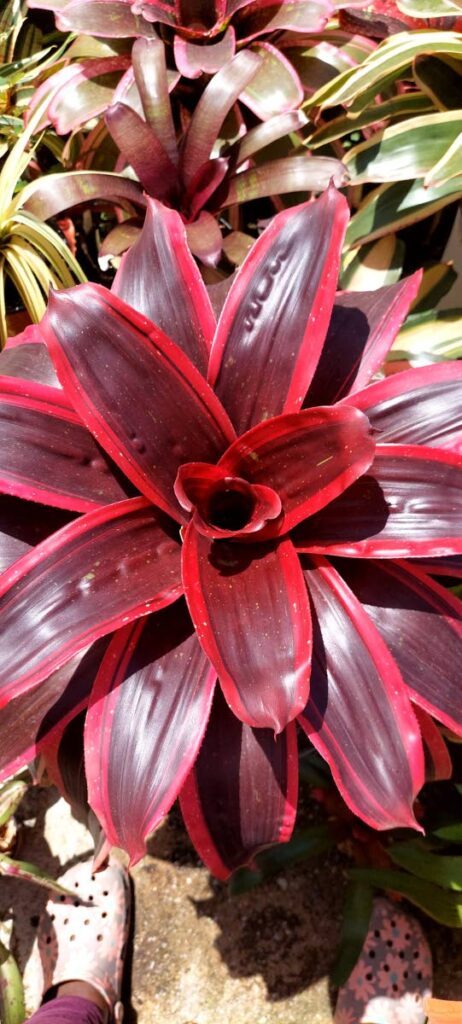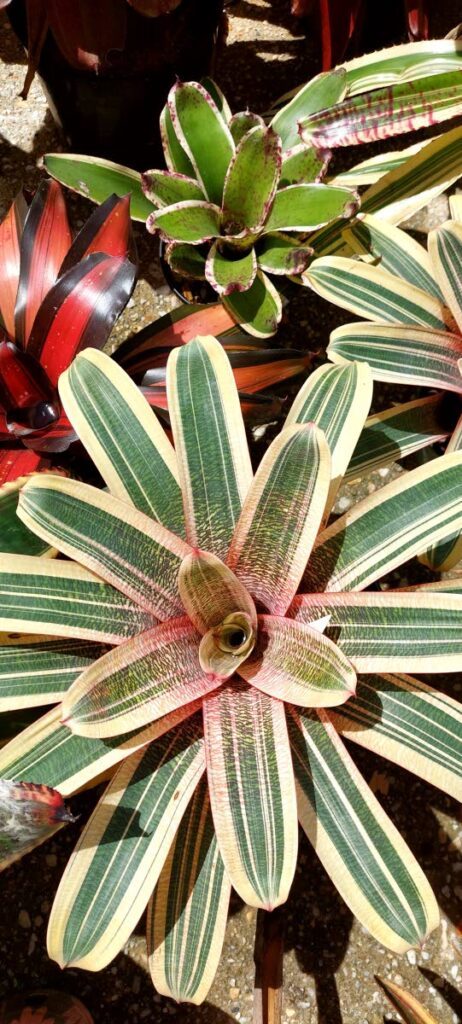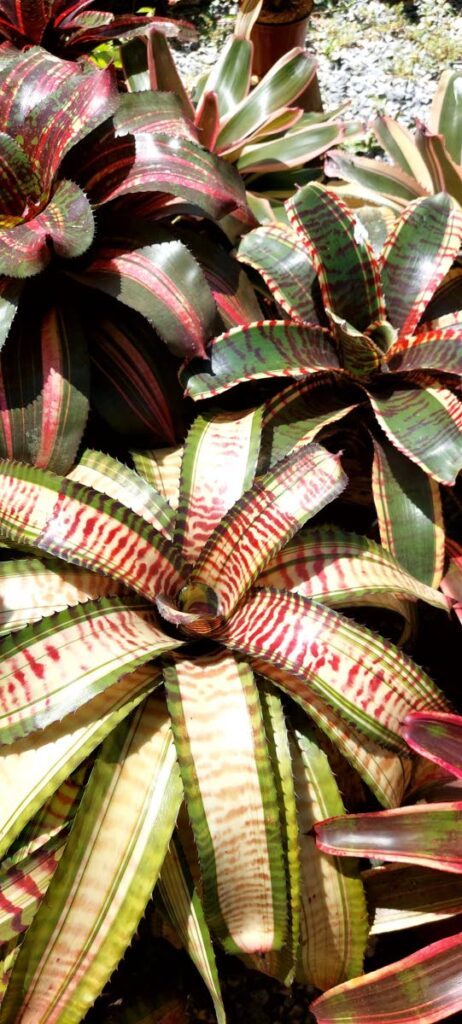Eastern Horticultural Club kicks off public education initiative: Bromeliads and managing mosquitoes

Allison Attzs and Kwame Daniel
IN the last seven years bromeliads have become increasingly popular in TT’s landscape. Thanks to their ease of care, limited water requirements and brightly coloured foliage, ranging from deep green to vibrant reds and pinks, these plants, with their unique adaptations and stunning appearance, have captivated plant enthusiasts locally and worldwide.
Bromeliads face few pest problems and can tolerate a significant amount of neglect.
However, their unique structure can create habitats conducive to mosquito breeding. The cup-shaped centre of many bromeliads collects rainwater and organic debris, creating a possible environment for mosquito larvae to thrive.
This poses a significant problem, especially in regions prone to mosquito-borne diseases.
The recent surge of dengue cases at the start of the rainy season highlights bromeliads' ability to hold water in their central cup.

The Eastern Horticultural Club, recognising the public health implication of mosquito-breeding in bromeliads, has taken a proactive stance. The club’s initiative aims to educate the public on how to enjoy these beautiful plants while minimising the risk of mosquito proliferation. Through social media, informational materials and community outreach, the club is empowering gardeners with the knowledge and tools necessary to manage this issue effectively.
Regular maintenance:
One of the simplest and most effective ways to prevent mosquito breeding is through regular maintenance of bromeliads. Gardeners are encouraged to flush the water from the plant’s centre at least once a week. This disrupts the mosquito life cycle and prevents larvae from maturing into an adult mosquito.
Use of larvicides:
In situations where water cannot be easily removed, the use of safe, biological larvicides can be an effective solution. These products, such as
Bacillus thuringiensis israelensis (Bti), specifically target and only affect the larvae of the mosquito without harming the plant or other beneficial insects and are safe to use in residential, commercial and agricultural settings primarily for controlling mosquito larvae.
Mosquito-repelling plants:
Most insect-repelling plants do so with their natural fragrances, which keep mosquitoes away and introduce wonderful scents through your garden.
If you don’t want to douse yourself or your garden in chemical bug sprays, you can grow some of these plants to help keep mosquitoes away naturally, like marigold, citronella grass (lemon grass), rosemary, mint, and sage – all available locally.
Educational outreach:
The Eastern Horticultural Club’s outreach includes online education via social media platforms and seminars aimed at both novice and experienced gardeners. These sessions cover a range of topics from basic plant care to advanced pest-management techniques.

Additionally, the club will use the assistance of reputable stakeholders in the industry (nursery sellers/importers/educators) to personally educate their customers and maintain a robust online presence, ensuring their resources are accessible to a wide audience.
Community engagement:
Community engagement is a cornerstone of the club’s initiative. By partnering with government institutions, communities, and health organisations, the Eastern Horticultural Club is extending its reach and fostering a community-wide effort to combat mosquito-borne diseases. Volunteers from the club give demonstrations, provide free larvicide samples and offer personalised advice to gardeners facing specific challenges.
The Eastern Horticultural Club’s initiative to educate the public on managing mosquitoes and bromeliads represents a vital step in reducing the risk of mosquito-borne diseases. By promoting simple yet effective strategies, the club is helping gardeners enjoy the beauty of bromeliads without compromising their health and safety. Through continued education and community engagement, the club is paving the way for healthier gardens and communities.
By adopting these practices, gardeners can continue to enjoy the lush beauty of bromeliads while ensuring their gardens do not become breeding grounds for mosquitoes.
The Eastern Horticultural Club stands ready to assist, offering expertise and resources to all who seek to create a safe and beautiful outdoor space.
For further information contact the Eastern Horticultural Club at 357-5033, 720-2698 or easternhorticultural@hotmail.com.
The club meets on the first Saturday of every month (except public holidays) at 3 pm at the YWCA, Gordon Street, St Augustine.

Comments
"Eastern Horticultural Club kicks off public education initiative: Bromeliads and managing mosquitoes"